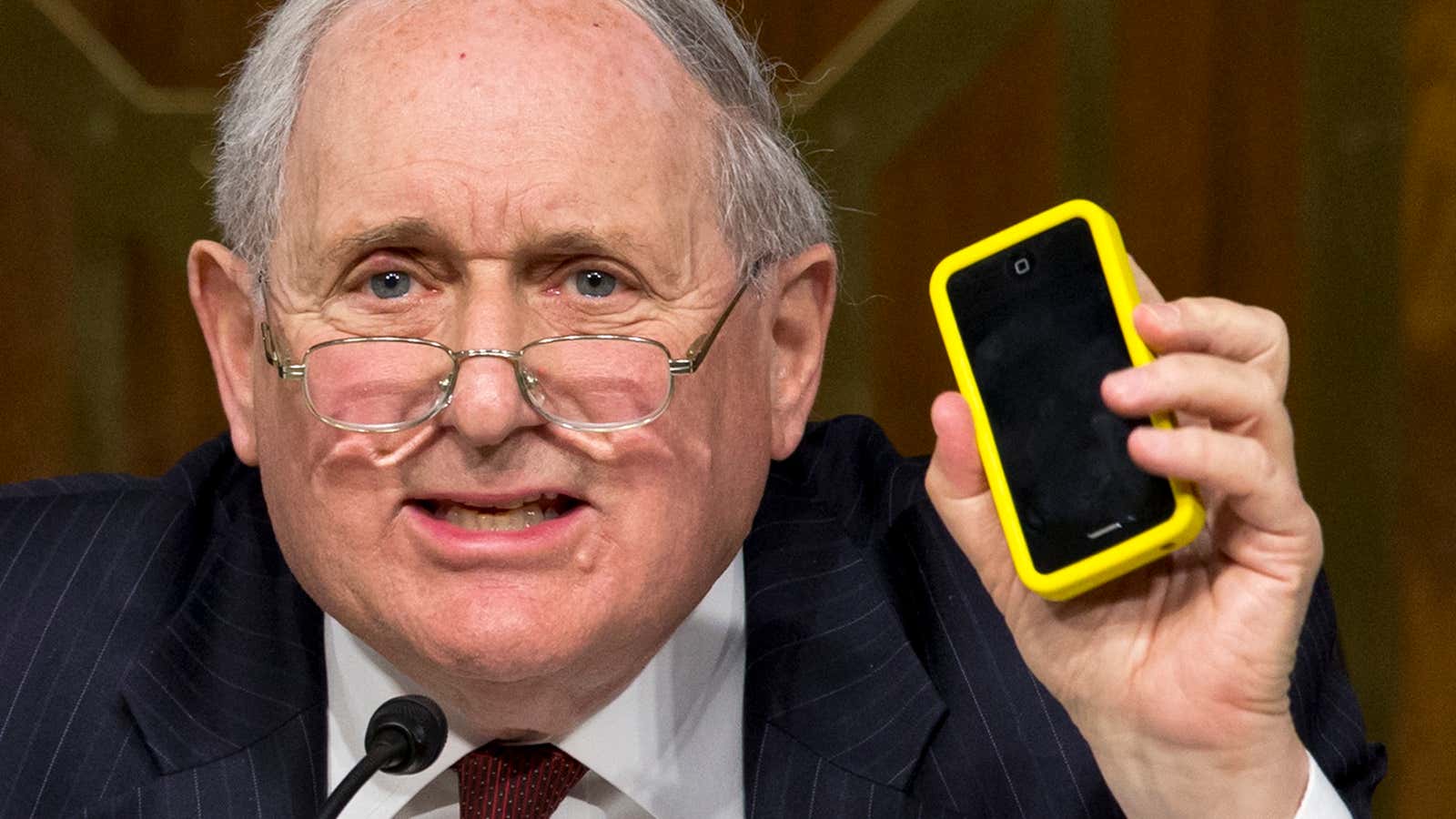In its current state, the iPhone is Apple’s diligent attempt to create the Platonic ideal of smartphones, says mobile analyst Horace Dediu. This was Dediu’s observation regarding a question asked of Tim Cook: why does Apple only make one model of smartphone, as opposed to competitors like Samsung, which make dozens of models? Apple’s engineers and designers haven’t wanted to create a device that would involve what Cook calls “tradeoffs.” Those tradeoffs would include, say, sub-optimal battery life, a less attractive screen or a more breakable phone.
In a world of rapidly advancing smartphone components—displays, batteries, microprocessors—the only way to make a superior smartphone that meets Apple’s standards, note Cook and Dediu, is to single out only those components that achieve the perfect balance of form and function. That’s why one iPhone after another has been merely a refinement of its predecessor. It’s a process some industry observers call boring and others deem to be high art.
But here’s the twist: Cook did not rule out the possibility that some day there will be a variety of iPhones, just as Apple sells an array of notebook computers and iPods. And there comes a time when higher technologies no longer enhance the user experience for a device (for instance, the $250 Google Chromebook has eliminated my need for a more expensive laptop). The question is when the time will come for Apple to roll out a cheaper iPhone.
